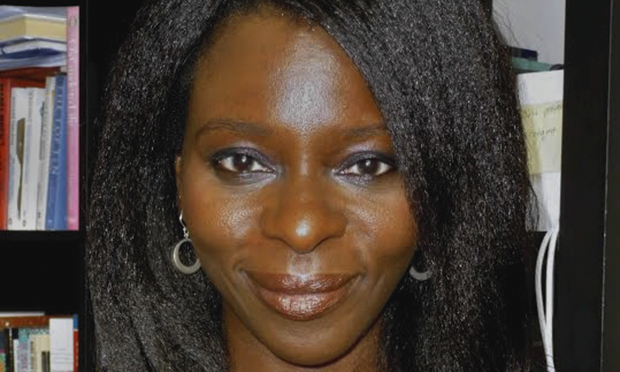‘In a white-dominated industry black issues become a shorthand’

Founder of Jacaranda Books Valerie Brandes
Across North London, just outside the historic Hampstead Cemetery, an independent publishing house is breaking ground for diverse voices in publishing – and founder Valerie Brandes holds her upbringing in Hackney responsible for her motivation, and her success.
Founded three years ago, and named after a tree that grows from the Caribbean to the Himalayas, Jacaranda aims to provide a space for unheard voices “as cosmopolitan as our city” – a vision of London born out of Brandes’ own childhood.
“I grew up in Stoke Newington, among so many different cultures. The whole neighbourhood would be playing together, running in the streets: Turkish, Greek Cypriots, English, the Barbadian family over the road, the Irish families… I wouldn’t say it was perfect, but compared to what we have today, it made you aware of how other people lived – I had this understanding of cultures, and difference.”
That upbringing has guided Brandes’ life, and her career: throughout her time at the University of Exeter, two decades spent living in the USA (where, she recalls, she observed the damaging ‘cultural cul-de-sac’ that monoethnic societies can encourage) and her return to the London publishing industry with Profile Books. There is a phrase that Brandes comes back to often, which seems to ground her, and against which she measures her experiences of ethnicity across her life: “I’m a Hackney girl!”
What does being ‘a Hackney girl’ mean to her? “It brings to mind a sense of pride, and a feeling like I’ve been well brought up. Growing up at that time in Hackney was not by any stretch an ideal situation in economic terms, but we were never ignorant of other people’s lifestyles and cultures. We were united as a working class community, and that kept a sense of connection between all kinds of people.”
On her return to London, Brandes was brought back into contact with the UK publishing industry, which is still struggling to support the growth of diverse voices, in terms of both ethnicity and gender. “The lack of diversity in publishing,” Brandes suggests, “is ultimately to do with class, not race, but it has the same effect.
“All these publishing houses offer unpaid internships, which only certain people can afford to take on. Then it’s those people who are first in line when full-time positions come around.”
As we talk, it is clear there is tension in Brandes’ mission between promoting the voices that have long been sidelined in British publishing, and not being seen as a ‘niche’ publisher.
It is clear there is a need for the former. “What happens in a white-dominated industry is that black issues become a shorthand,” Brandes says. “When I set out to found Jacaranda, the role that I thought I could play, the service I could offer, was to show that outside the media-appropriated image of blackness in this country, there is a depth of talent, and interest and variety and brilliance that is completely disregarded.”
At the same time, however, Brandes hesitates to call it a ‘gap in the market’. “I don’t see it as a gap, really. We are straddling two worlds, doing the thing that we do. We’re interested in good writing – if it’s black, white, Polish, Congolese, it doesn’t matter! That’s what we’re able to offer.”
Of special satisfaction, though, is their involvement with Hackney-raised authors Stephen Thompson and Irenosen Okojie. “It’s great to be working with authors from all around the world, regardless of their background, but even more amazing to be able to say we’re working with two authors from just down the road from where I grew up.” Brandes and Thompson just spoke together on the topic of diversity in publishing at the Henley Literary Festival.
Brandes sees Jacaranda as built upon a heritage of pioneering publishers in the UK supporting diverse voices. She takes her inspiration from publishers like Bogle-L’Ouverture and Tamarind Books.
“They were founded to address the fact there were no black books for black children in the eighties in Britain,” explains Brandes. “Honestly, it’s hard now to do what we do, but to do that then? It gives me a feeling of standing on shoulders, and a lot of confidence.’ She pauses, and concludes: ‘And that’s something else I got from being a Hackney girl. I went away for 20 years, and I do believe that growing up in Hackney carried me through. ‘I’m a Hackney girl,’ I’d always say, ‘I can handle this’.”
